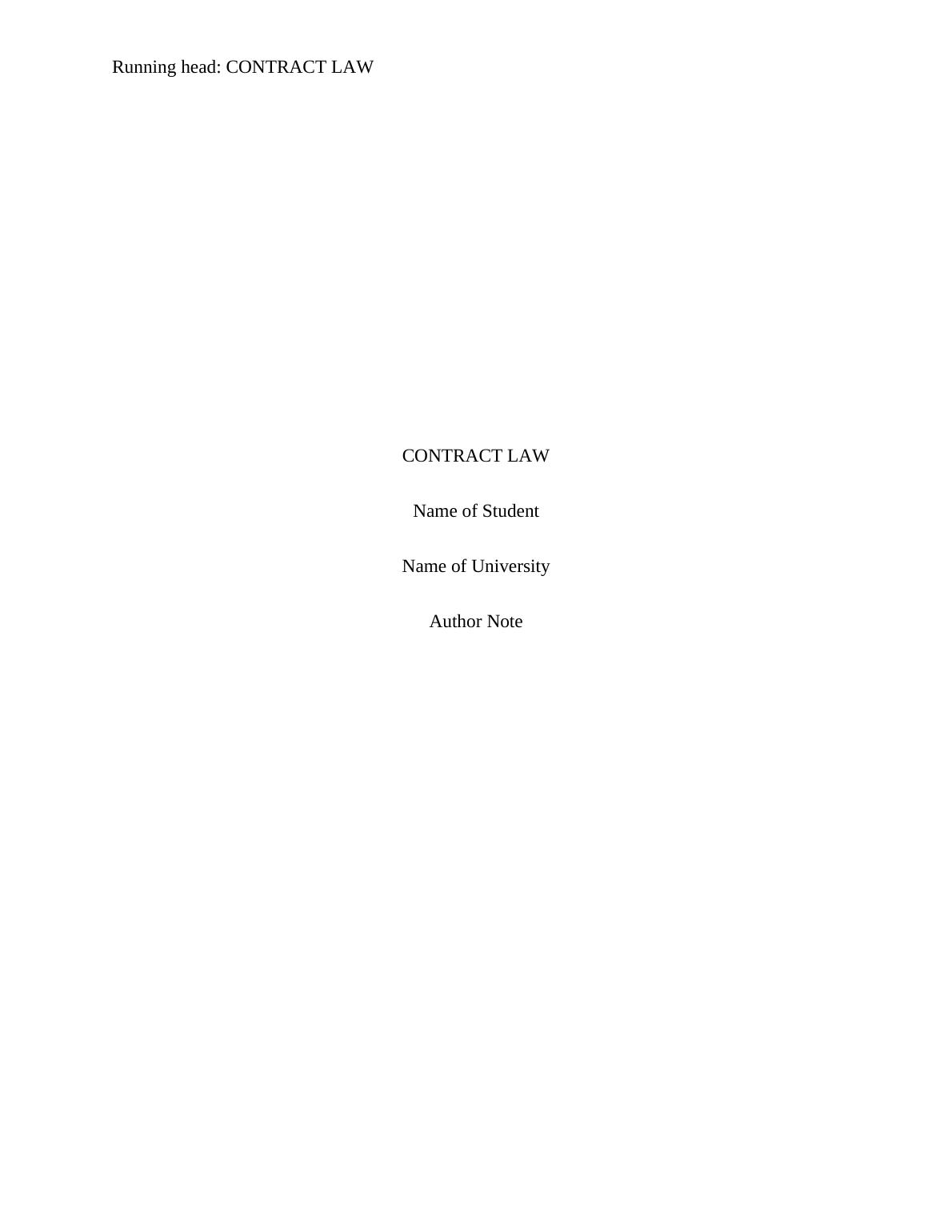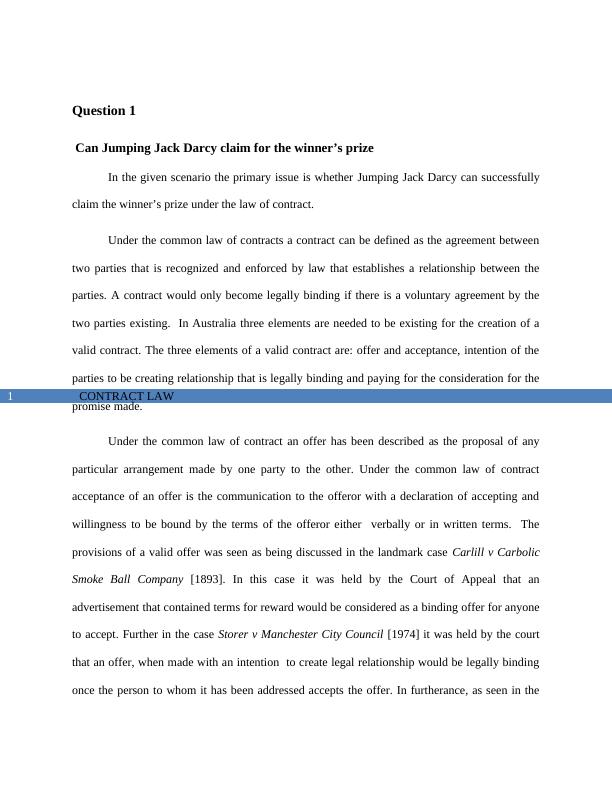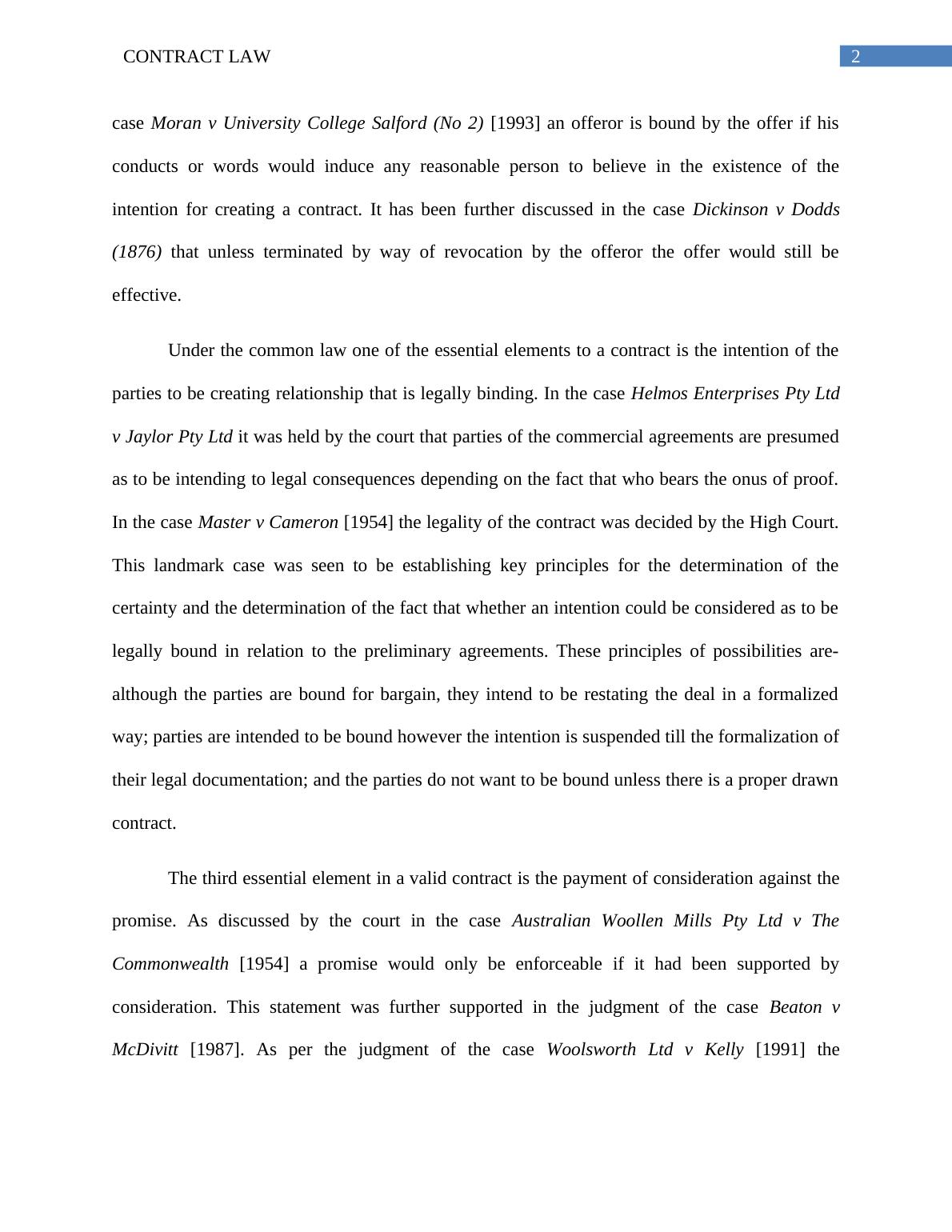Contract Law: Validity of Contract and Promissory Estoppel
Analyzing whether Jumping Jack Darcy can claim the winner's prize in a contract law scenario.
8 Pages2197 Words132 Views
Added on 2022-11-23
About This Document
This article discusses the validity of a contract and promissory estoppel in the context of contract law. It analyzes the essential elements of a valid contract and the application of promissory estoppel in the absence of a legal contract.
Contract Law: Validity of Contract and Promissory Estoppel
Analyzing whether Jumping Jack Darcy can claim the winner's prize in a contract law scenario.
Added on 2022-11-23
ShareRelated Documents
End of preview
Want to access all the pages? Upload your documents or become a member.
Law Project: Contract Law and Promissory Estoppel
|9
|2298
|280
Contract Law and Promissory Estoppel in Australian Context
|6
|1977
|428
Contract Law: Elements and Application
|13
|2974
|490
Contract Law and Negligence in Australia
|9
|2701
|201
Contract Law Issue - Assignment
|6
|963
|73
Contract Law: Validity of Offer and Acceptance
|12
|3336
|263



